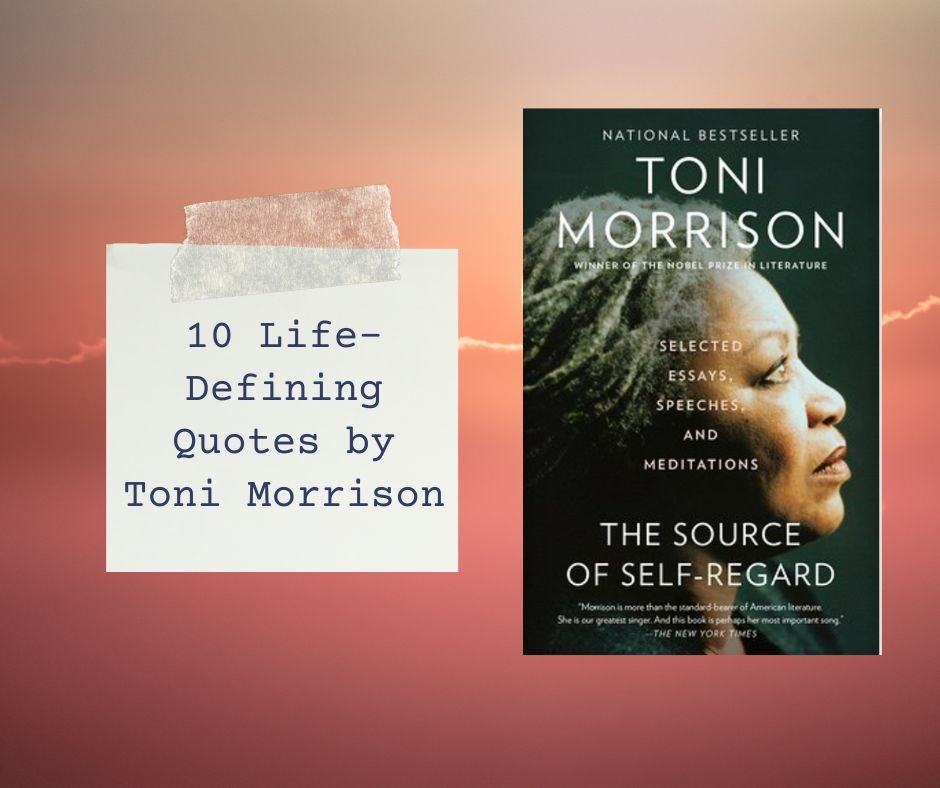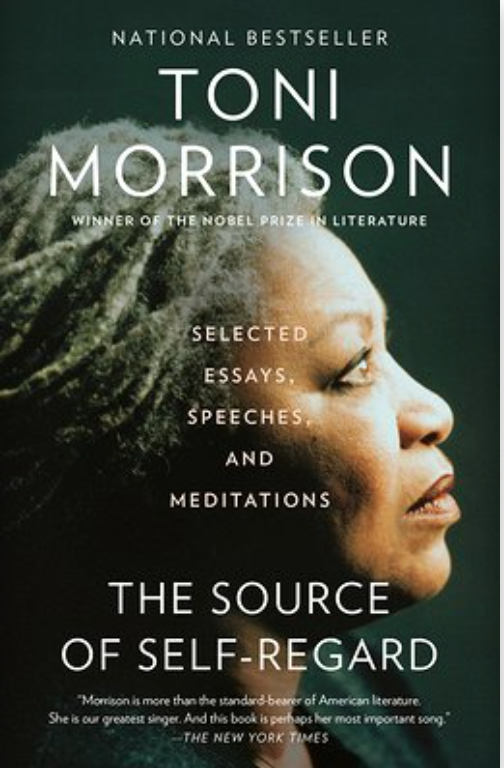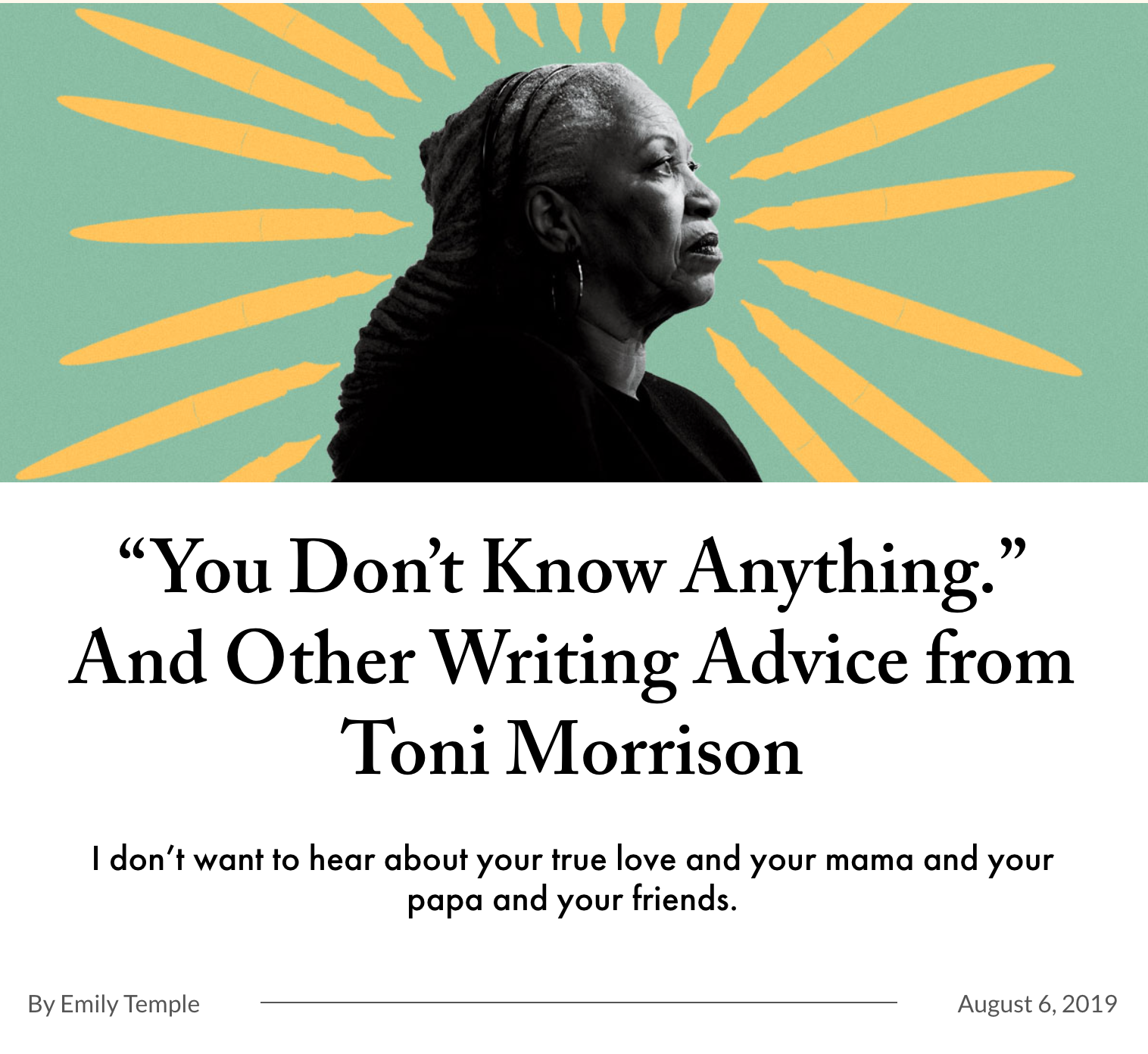10 Life-Defining Quotes by Toni Morrison
Toni Morrison is, of course, the woman known worldwide as the author of The Bluest Eye, Sula, Song of Solomon, Tar Baby, Beloved, and the list goes on. She was one of only 12 Americans to win the Nobel Prize for Literature, taught writing at Princeton for many years, and has been celebrated and interviewed over and over again for her important contributions, her voice, and her unapologetic writing style. Her books have been reviewed as some of the most beautifully written and critically important to read time and time again. And this year, her life is being celebrated with the documentary The Pieces I Am streaming on Netflix and with the Toni Morrison commemorative forever stamp in the US.
Toni Morrison is also a person I’ve featured quite a few times in my own writing. First, when I switched over from travel blogging to writing a family togetherness blog in 2019, one of the first five blogs I wrote to launch my site was “The Time Toni Morrison Changed My Life”. Then, I wrote to the email group about it and published that, too, as “Let Your Face Light Up: A Family Togetherness Tip from Toni Morrison”. And finally, last year, as I was switching from family togetherness blogging to personal growth, I wrote about that same Toni Morrison moment in “Can You Really Shift Your Life Overnight?”. But even though I’m embarrassed to say it, I have to admit that as of this writing, I haven’t read even one complete book by Toni Morrison. And yet,
I can say without a doubt that my life has been redefined by her words.
After hearing or watching a compelling interview with Toni Morrison, I’ve started reading her novels many times, one after another, telling myself, “Surely, this will be the one I fall in love with” only to lose steam, fail to see myself in the story, and leave it unread. Recently, I read a beautiful article about Toni on LitHub and started watching her documentary The Pieces I Am on Netflix and discovered why this has been my experience—Toni Morrison does not write for me. The reason I cannot see myself in her stories is because of Toni’s deep commitment to and expertly crafted execution of writing, as she puts it in her interview in Black Women Writers at Work, “the world of black people”. As she has said so many times, she wrote the books she wanted to read, stories that weren’t out there for her. These are stories that were probably painful reminders of my own unconscious bias, revelations of my own selfish expectation that my world is “the” world. And yes, now that I’m understanding myself a little better and can face that bias and try to correct it, I can’t wait to get my hands on her novels. But first, I’m going to start with her nonfiction title The Source of Self-Regard. For now, I’m so delighted to share the quotes by Toni Morrison I’ve found most life-defining thus far.
10 life-defining quotes by Toni Morrison:
About finding time to do what’s important, she says:
“Time has never really been a problem for me. I don’t do much. I don’t go out. I don’t entertain. And I get off the telephone. Those activities demand an enormous part of what people call time.”
&
“I tell my students one of the most important things they need to know is when they are their best, creatively. They need to ask themselves, What does the ideal room look like? Is there music? Is there silence? Is there chaos outside or is there serenity outside? What do I need in order to release my imagination?”
About life & family, she says:
“What’s interesting to see is, when a kid walks into a room, your child or anybody else’s child, does your face light up? That’s what they’re looking for . . . When they see you, they see the critical face—what’s wrong now? But if you try to let your face speak what’s in your heart. . . When they came in, I was glad to see them. It’s just as small as that.”
&
“I tell my students, When you get these jobs that you have been so brilliantly trained for, just remember that your real job is that if you are free, you need to free somebody else. If you have some power, then your job is to empower somebody else.”
About failure, she says:
“A failure is just information. . . I recognize failure—which is important; some people don’t—and fix it, because it is data, it is information, knowledge of what does not work. . . Pay very close attention to it, rather than get depressed or unnerved or feel ashamed. None of that is useful. It’s as though you’re in a laboratory and you’re working on an experiment with chemicals or with rats, and it doesn’t work. It doesn’t mix. You don’t throw up your hands and run out of the lab. What you do is you identify the procedure and what went wrong and then correct it. If you thing of [it] simply as information, you can get closer to success.”
About creating beautiful things, she says:
“It’s that being open—not scratching for it, not digging for it, not constructing something but being open to the situation and trusting that what you don’t know will be available to you. It is bigger than your overt consciousness or your intelligence or even your gifts; it is out there somewhere and you have to let it in.”
&
“I think an artist, whether it’s a painter or a writer, it’s almost holy. There’s something about the vision, the wisdom. You can be a nobody, but seeing that way, it’s holy, it’s godlike. It’s above the normal life and perception of all of us, normally. You step up. And as long as you’re up there, even if you’re a terrible person—especially if you’re a terrible person—you see things that come together, and shake you, or move you, or clarify something for you that outside of your art you would not have known. It really is a vision above, or beyond.”
&
“I don’t want to hear whining about how it’s so difficult. Oh, I don’t tolerate any of that because most of the people who’ve ever written [or created something] are under enormous duress, myself being one of them. So whining about how they can’t get it is ridiculous.”
About writing, she says:
“I have an ideal writing routine that I’ve never experienced, which is to have, say nine uninterrupted days when I wouldn’t have to leave the house or take phone calls. And to have the space—a space where I have huge tables. . . I am not able to write regularly. I have never been able to do that—mostly because I have always had a nine-to-five job. I had to write either in between those hours, hurriedly, or spend a lot of weekend and predawn time. . . “
&
”There’s a difference between writing for a living and writing for life. If you write for a living, you make enormous compromises, and you might not ever be able to uncompromise yourself. If you write for life, you’ll work hard; you’ll do it in a disciplines fashion; you’ll do what’s honest, not what pays. You’ll be willing to say no when somebody wants to play games with your work. You’ll be willing to not sell it. You’ll have a very strong sense of your work, your self-development.”
Sources mentioned in this post:
For more positive chit-chat like this in your life,
Join the Friday morning email group.
💌
To share this with a friend,
Buttons below ⤵






